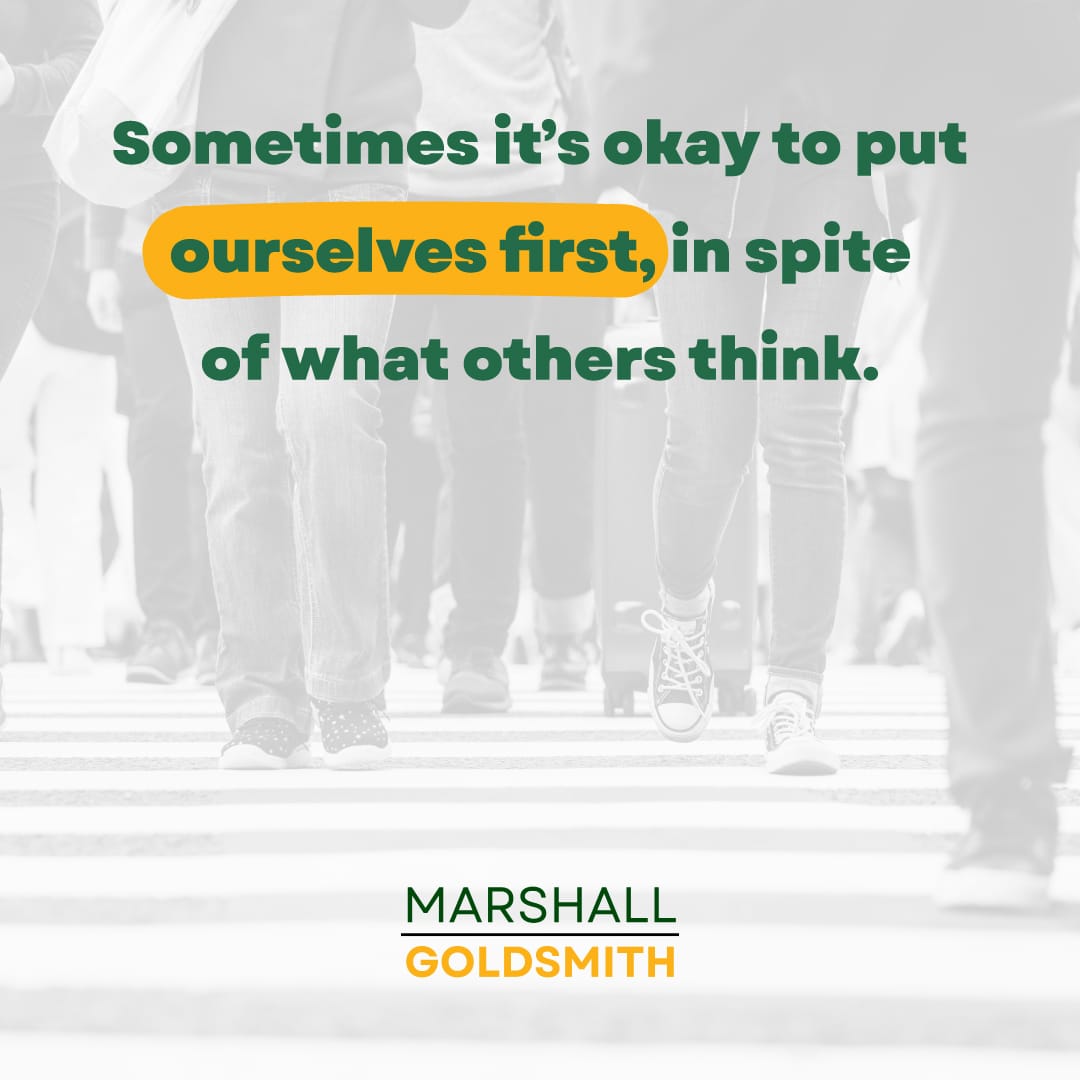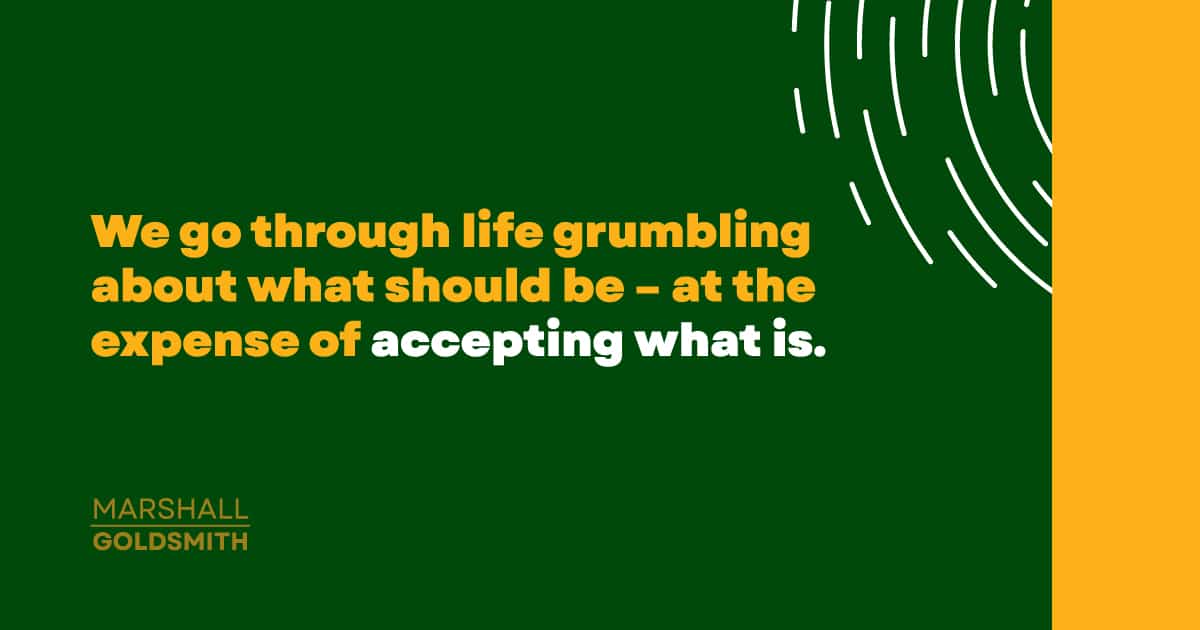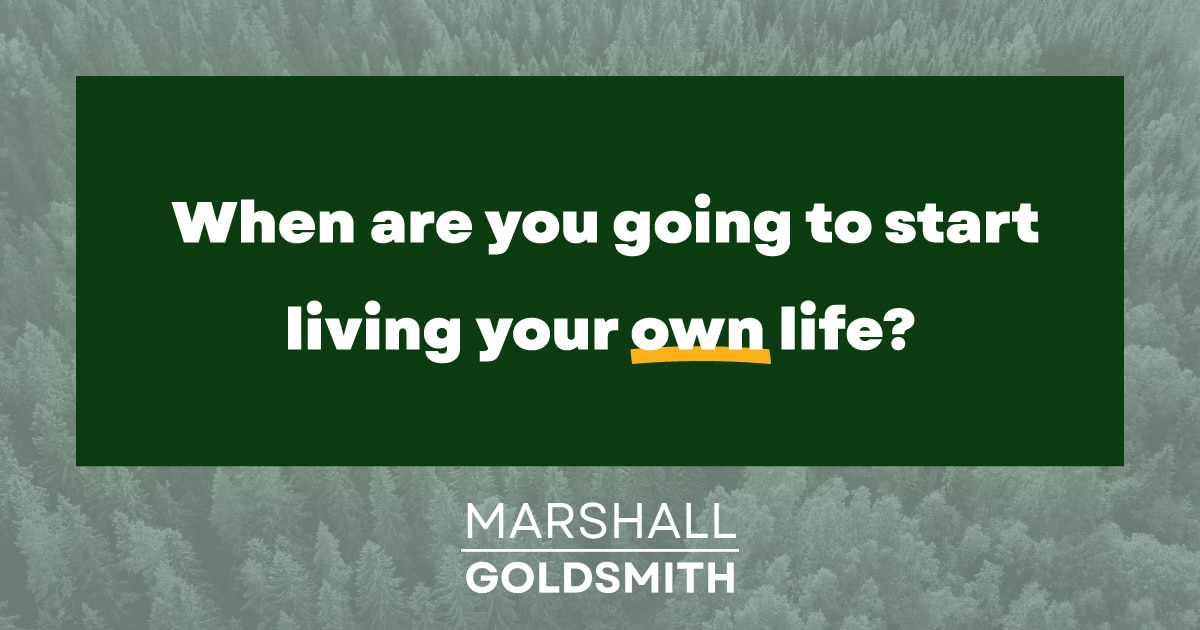Playing Favorites By Marshall Goldsmith There’s a reason I devote...
A number of years ago, I was flying to Santa Barbara, California. Suddenly, the plane took an enormous dip. The pilot immediately came on the speaker system and announced, “We have a minor problem. The landing gear isn’t working. We are going to circle the airport until we run out of fuel so we can land more safely with the wheels up.”
Needless to say I was afraid for my life! In this seemingly eternal moment, when I thought I might die, I pondered my life. I asked myself, “What do I regret?”

The only answer I could come up with was that I had never adequately thanked the many people who had been good to me in my life.
I told myself, “If I ever get back down on the ground safely, I will thank these people.” This is not an uncommon thought. Research shows that the number one regret children have when their parents die is that they never told them how much they appreciated all that their parents had done for them.
The plane landed safely (believe me, I thanked the pilot and crew) and when I got to my hotel room, the first thing I did was write gushy, mushy thank you notes to at least 50 people who had helped me in my life.
That was the moment I became a connoisseur of gratitude, a virtuoso at thanking. I’m always thanking people now in my e-mails, letters, seminars, and life.
The last thing I say on most phone calls is not “goodbye” but “thank you.” When it comes to gratitude, I’m a radical fundamentalist. I’ve even gone so far as to make a list of the top 25 people in both my personal and professional lives to whom I owed thanks. I had special certificates printed up with their names embossed in gold lettering saying, “Thank you. You’re one of the top 25 people who have helped me have a great life.”
I realize this is a bit extreme, but I make no apology for it. I have a lot of deficiencies, but gratitude is not one of them. I regard gratitude as an asset and its absence a major interpersonal flaw. I’m proud to say that I give myself an A+ in gratitude.
The Gratitude Exercise
No matter how far along you are in life, think about your career, think about your personal life. Who are the people most responsible for the person you are today, for your success? Write down the first 25 names that come to mind. Ask yourself, “Have I ever told them how grateful I am for their help?” If you’re like the rest of us, you may fall short in this area.
Write each of these people a thank you note.

This isn’t just an exercise in making yourself and other people feel good (although that’s a worthwhile therapeutic venture). Writing a thank you note forces you to confront the humbling fact that you have not achieved your success alone. You had a lot of help along the way.
More importantly, it forces you to identify your strengths and weaknesses. After all, when you thank people for helping you, you’re admitting that you needed help in the first place – which is one way to pinpoint your deficiencies. If you didn’t need to improve in a specific area, you wouldn’t have needed another person’s help. Think of it as a thank-you note’s side benefit; it helps you identify your weak spots.
As I type this, it occurs to me that telling people to write thank you notes is obvious, almost trite. Yet, I’m always amazed at how neglected a practice thanking is. None of us can ever do it enough.

Adding Too Much Value Won’t Get You There By Marshall...
C-Suite Master Class: No, But, However By Marshall Goldsmith Continuing...
The Doerr Institute: Expanding the Market for Coaches By Marshall...
Making Leadership Development Part of the College Degree at Rice...
Sanyin Siang – Winner of the Thinkers50 Marshall Goldsmith Coaching...
Thinkers50 Marshall Goldsmith Distinguished Achievement Award in Coaching – Nominees...
Leading with Influence: What Is Influence360°? By Marshall Goldsmith Founder...
Are You a Dominator, Manipulator, Persuader or Influencer? By Marshall...
Leading with Influence: Redefining Modern Influence Part 2 By Marshall...
My mission is simple. I want to help successful people achieve positive, lasting change and behavior; for themselves, their people, and their teams. I want to help you make your life a little better. With four decades of experience helping top CEOs and executives overcome limiting beliefs and behaviors to achieve greater success, I don’t do this for fame and accolades. I do this because I love helping people!
As an executive educator and coach, I help people understand how our beliefs and the environments we operate in can trigger negative behaviors. Through simple and practical advice, I help people achieve and sustain positive behavioral change.